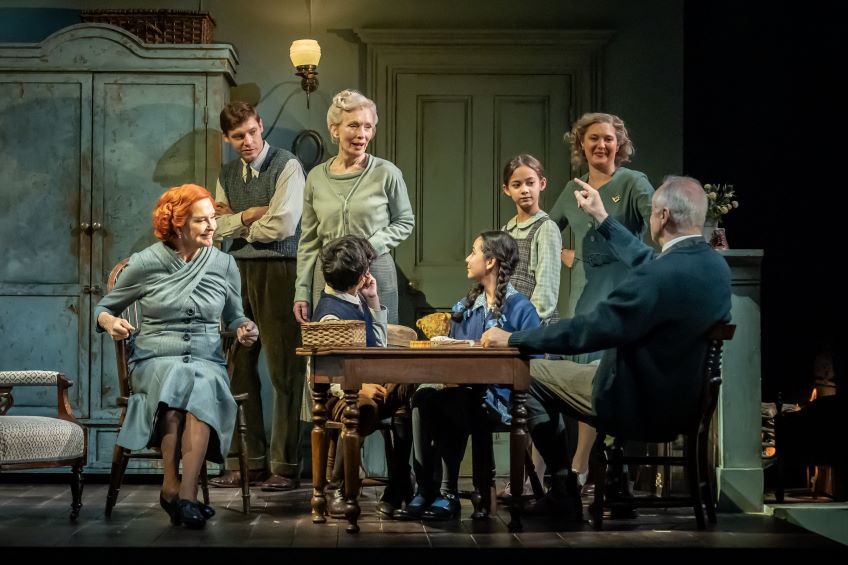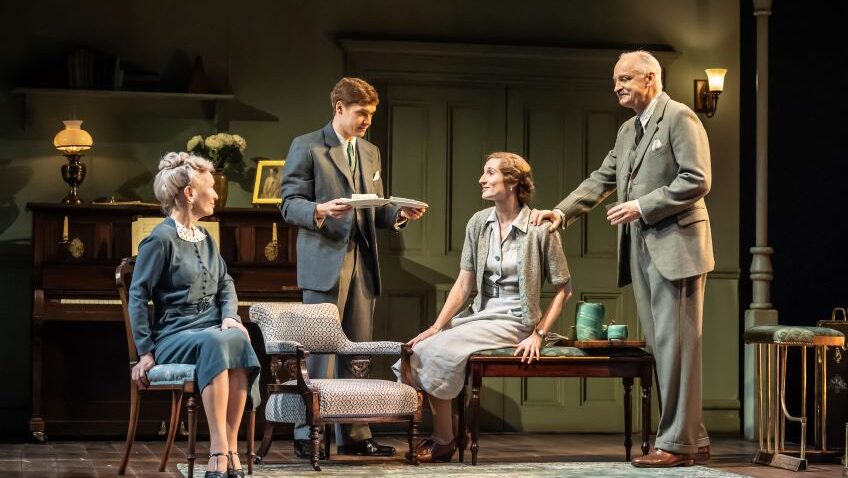Dodie Smith (1896-1990), best known today for her novels, I Capture the Castle and The Hundred and One Dalmatians, was a prolific and highly successful playwright. She had six long-running plays in the West End in the 1930’s.
Dear Octopus, her best comedy, a heartfelt tribute to that “British Institution, the family”, had a brilliant cast headed by Marie Tempest and John Gielgud. The premiere in 1938 coincided with the Munich (“peace in our time”) Agreement and looming World War II. “It’s a charming, cozy kind of play and people loved it,” said Gielgud.
Dodie Smith had written the role of the eldest son specifically for Gielgud and he had the play’s key speech, a grand toast to “the family, that dear octopus from whose tentacles we never quite escape, nor in our inmost hearts ever quite wish to.”
The play was last revived in London in 1967 with an all-star cast led by Cicely Courtneidge and Jack Hulbert. There has been nothing on stage since. The National Theatre’s revival is most welcome and doubly since it is so well performed by a cast headed by Lindsay Duncan. Beautifully directed by Emily Burns and beautifully designed by Frankie
Bradshaw, it feels absolutely right, a perfect ensemble period piece with Chekhovian moments.

The revolving set moves from hall to nursery to dining room with ease. There is little plot. Instead, there is plenty of interaction between the sixteen characters; though it is not always easy to work out who is related to whom. (A friend of mine suggested there should be a family tree in the programme.)
Four generations of one family assemble in a country house to celebrate the golden wedding anniversary of Charles and Dora Randolph (played by Malcolm Sinclair and Lindsay Duncan), who accept old age gracefully, unlike some other members. Dora is a kindly martinet who expects everybody to jump at her every command and do little jobs for her immediately.
Fenny, Dora’s companion, is in love with Nicholas, Dora’s eldest son, and everybody knows it, except Nicholas, who is played so very boyishly young by Billy Howle that it seems Fenny is much, much older than he is. From a dramatic point of view, the highly strung and frustrated Fenny, touchingly acted by Bessie Carter, should remain a spinster. The sentimental happy ending rings totally false; but Dodie Smith knew what her 1930’s audience wanted and wisely gave it to them.
To learn more about Robert Tanitch and his reviews, click here to go to his website. 




